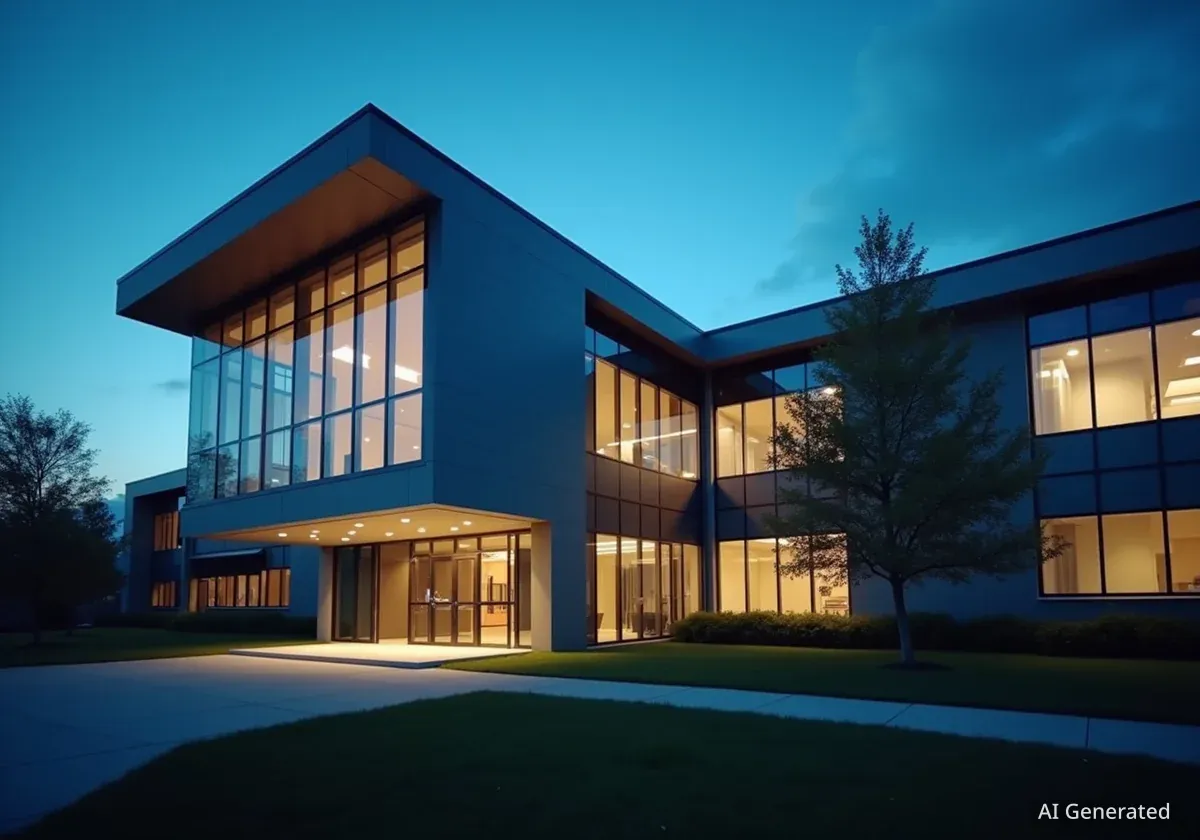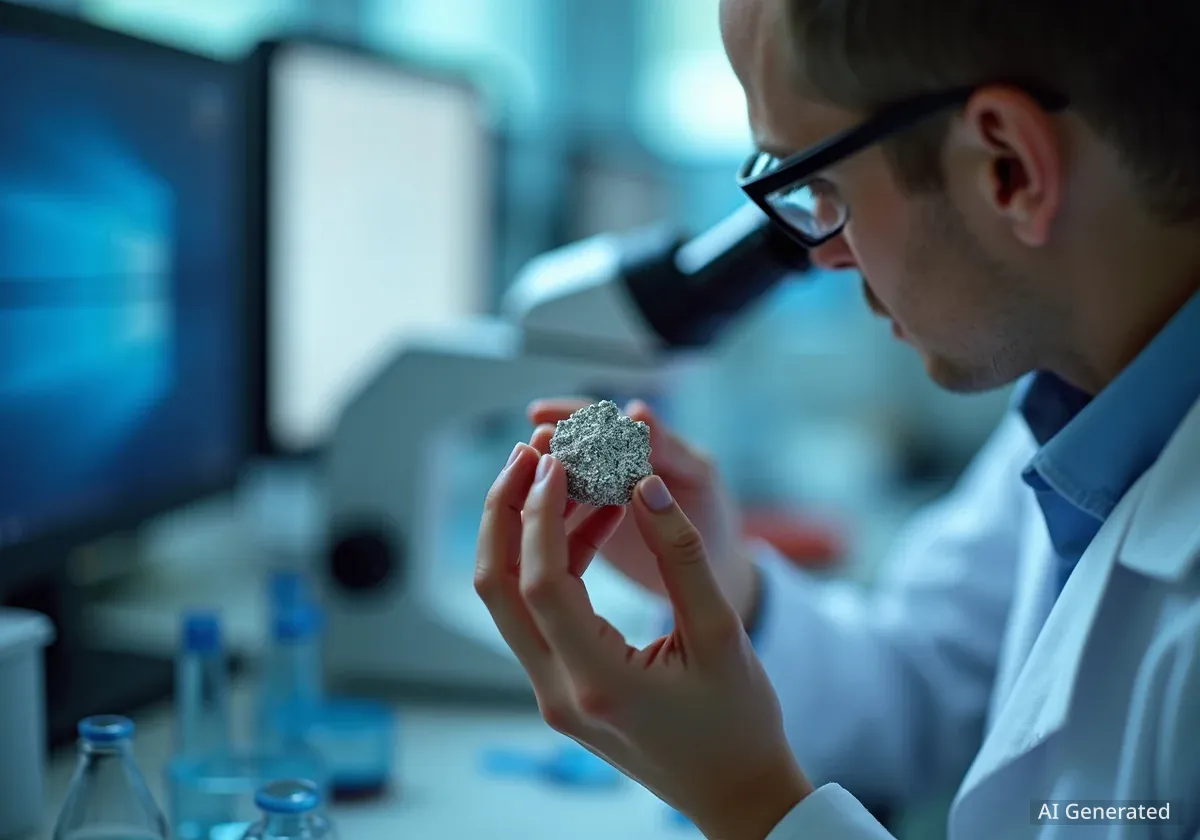Northwood University has announced a major investment of $350 million to construct a new Institute for AI and Quantum Computing. The state-of-the-art facility aims to position the university as a global leader in emerging technologies and drive regional economic growth.
Construction on the 200,000-square-foot building is scheduled to begin in the fall of 2024, with an expected completion date in early 2027. The project represents the single largest capital investment in the university's history.
Key Takeaways
- Northwood University is investing $350 million in a new Institute for AI and Quantum Computing.
- The 200,000-square-foot facility will focus on research in artificial intelligence, machine learning, and quantum science.
- The project is expected to create over 250 new research and faculty positions.
- Construction will begin in late 2024 and is projected to finish by 2027.
A Strategic Investment in Future Technology
Northwood University's decision to allocate $350 million towards the new institute underscores a strategic shift towards foundational technologies. University officials state the goal is to create a collaborative ecosystem for students, faculty, and industry partners to solve complex global challenges.
The funding will be sourced from a combination of university capital funds, philanthropic donations, and strategic state and federal research grants. This investment is designed not just to build a physical structure but to attract and retain top-tier talent in highly competitive fields.
What is Quantum Computing?
Quantum computing uses principles of quantum mechanics to solve problems too complex for classical computers. Instead of bits (0s and 1s), it uses qubits, which can exist in multiple states at once. This allows for exponentially greater processing power, with potential applications in medicine, materials science, and financial modeling.
The institute will serve as the new home for the university's Computer Science and Quantum Information Science departments. It will provide the necessary infrastructure to support research that is currently limited by existing facilities on campus.
Inside the New Research Facility
The planned 200,000-square-foot building will be more than just classrooms and offices. The design focuses on creating flexible, interdisciplinary research spaces that can adapt to the rapid evolution of technology.
Core Research and Lab Areas
The institute's layout is centered around specialized laboratories and collaborative zones. Key features of the facility will include:
- Quantum Entanglement Labs: Specially shielded environments designed for sensitive quantum experiments that require extreme stability and isolation from environmental interference.
- AI and Robotics Wing: A dynamic space for developing and testing autonomous systems, including drones, robotic arms, and AI-driven manufacturing prototypes.
- High-Performance Computing Cluster: A dedicated data center to provide the immense computational power required for machine learning models and quantum simulations.
- Secure Data Enclave: A facility for research involving sensitive or proprietary data, crucial for collaborations with corporate and government partners.
In addition to research labs, the building will feature seminar rooms, startup incubator spaces, and open-plan common areas to encourage spontaneous collaboration between different research groups.
Facility by the Numbers
- Total Cost: $350 Million
- Size: 200,000 square feet
- New Labs: 45+ specialized research labs
- Projected Jobs: 250+ new faculty and research staff positions
- Sustainability Target: LEED Gold Certification
Fostering Innovation and Economic Growth
The university's leadership emphasizes that the institute's impact will extend far beyond the campus grounds. A primary objective is to serve as an economic engine for the region, fostering a new generation of tech startups and attracting established companies to the area.
"This is not just an academic building; it is a commitment to the future of our community and our country's technological leadership," said Dr. Alistair Finch, President of Northwood University. "We are creating an environment where the brightest minds can collaborate on the next wave of innovation, leading to new companies, new jobs, and solutions we can't yet imagine."
The university projects that the institute will generate an estimated $150 million in annual economic activity within its first decade of operation. This includes direct employment, research grants, and the commercialization of new technologies developed within its labs.
Leadership Vision for the Future
The project is spearheaded by a team of academic leaders who see AI and quantum science as transformative fields. They believe that housing these disciplines under one roof will accelerate discovery by breaking down traditional academic silos.
Dr. Lena Petrova, the university's Dean of Engineering and Applied Sciences, commented on the interdisciplinary approach.
"The most significant breakthroughs happen at the intersection of different fields. By bringing together experts in AI, quantum physics, ethics, and policy, we can not only develop powerful new technologies but also guide their responsible implementation in society. This institute is designed to facilitate those crucial conversations."
The curriculum for students will also be heavily influenced by the new institute. Northwood plans to launch new undergraduate and graduate programs focused on AI ethics, quantum engineering, and machine learning applications, preparing students for jobs that are just beginning to emerge.
This focus on education is critical, as the demand for skilled professionals in these areas far outstrips the current supply. The university aims to produce graduates who are not only technically proficient but also understand the societal implications of their work.





